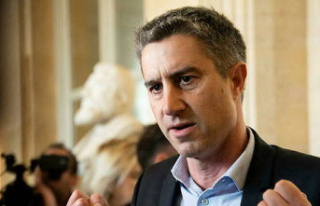Charles de Courson does not mince his words. While Le Point revealed that the President of the Constitutional Council, Laurent Fabius, found himself alone against everyone when deciding on the constitutionality of the pension reform – the former Socialist Prime Minister was the only one in favor of the censorship of the text -, the dean of the Palais-Bourbon (he has sat there since 1993) regrets that the Elders are "all politically marked" and believes that, by taking this decision, the members of the Constitutional Council have "consecrated the method of government" . Which leads, according to MP Liot, to marginalize the role of the National Assembly.
Le Point: We revealed this Friday behind the scenes of the decision of the Elders on the constitutionality of the pension reform, on April 14. The president of the institution, Laurent Fabius, in favor of censoring the text, found himself isolated against the eight other members of the Constitutional Council. How to interpret it?
Charles de Courson: The opinion of Laurent Fabius, president concerned about respecting our Constitution, should have been shared by his peers. But the Elders opted for what I would call the "cushy solution." They removed some legislative riders but considered that the conditions set by the organic law on the financing of Social Security had been respected. But that is completely wrong! In reality, the members of the Constitutional Council did not judge in law.
Explain yourself…
Why did Fabius find himself isolated? Because all the others said to themselves that if they were in power, they would still be very happy to have the possibility of passing their reforms through a bill for the amending financing of Social Security (PLFRSS). This option offers at least two advantages. It allows you to use 49.3 as much as you want, since it is a financial text, and it offers the luxury of significantly reducing the time it takes to examine the text: 20 days in the National Assembly and 50 maximum days in Parliament. But in taking this decision, they chose to consecrate the method of the government, which seems to believe that the Assembly should only have a secondary role among our institutions.
For what ?
For a simple reason: the members who sit on the Constitutional Council are all politically marked. Everyone is appointed there at the end of their political career in exchange for good and loyal service. None of them are specialists in constitutional law! The only one who has retained a certain independence of mind in this affair is Laurent Fabius.












